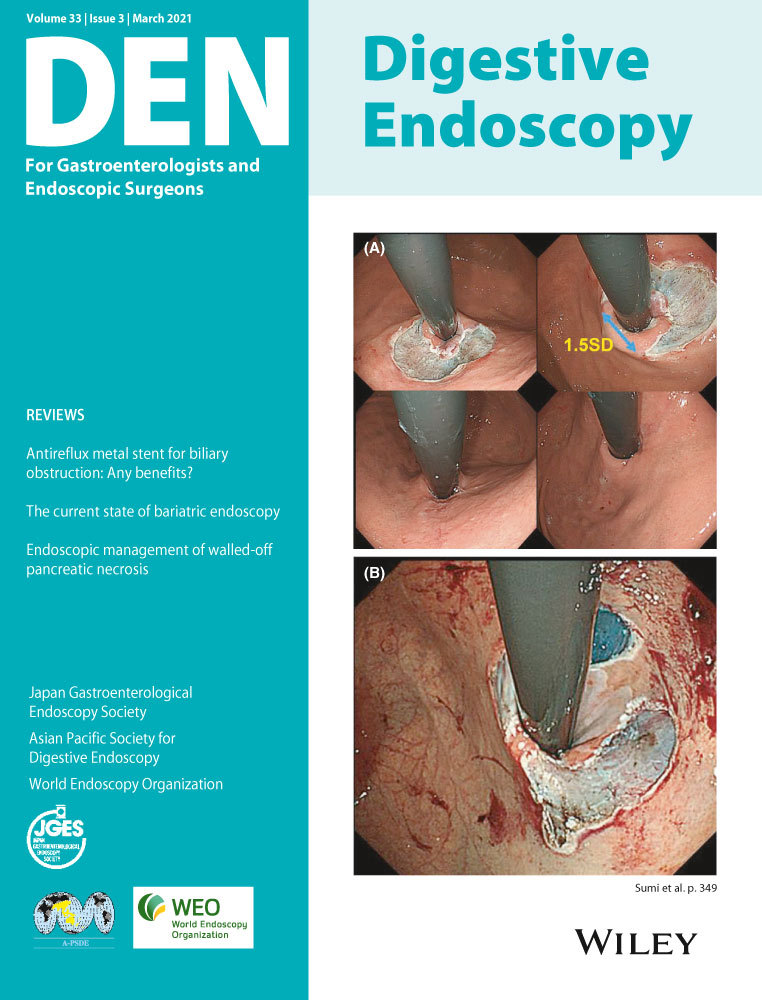Is endoscopic resection appropriate for type 3 gastric neuroendocrine tumors? Retrospective multicenter study
Abstract
Background
Gastrectomy with lymphadenectomy is recommended for type 3 gastric neuroendocrine tumors (G-NETs). This study aimed to identify the risk factors for lymph node metastasis (LNM) arising from G-NETs to assess the suitability of endoscopic resection (ER).
Methods
Nationwide clinicopathological data of patients with type 3 G-NETs who underwent surgery or ER were collected. A single pathologist graded the histological tumor specimens.
Results
Among 176 cases from 53 institutions, 144 were eligible for analysis (90 NET-G1 and 54 NET-G2 grade, 8-mm median-size tumors). Of these, 63 patients had undergone ER (15 with additional surgeries). Histological data regarding LNM were available for 93 surgical patients. LNM was confirmed in 15 (16%) tumors and was correlated with tumor diameter, invasion depth, and tumor grade. LNM was negative in six tumors ≤5 mm, confined to the mucosa or submucosa, with a grade of G1, and without lymphovascular invasion, but the number of cases was too small to propose ER indications. Among 48 patients treated with ER alone, only one developed recurrence; no mortality was observed at follow-up, although many patients were classified with SM2/NET-G2/tumors >5 mm. This suggests that not all LNMs arising from small G-NETs are fatal.
Conclusion
Gastrectomy with lymphadenectomy for type 3 G-NETs is recommended on the basis of LNM. However, ER for type 3 G-NETs ≤10 mm, confined to the mucosa or submucosa, with a grade of G1 has shown excellent survival outcomes despite the risk of LNM, and therefore, could be an alternative treatment option.
Conflicts of Interest
Author T.H. was supported by grants or donation from the Japanese Gastric Cancer Association research committee: The funding source had no role in the design, practice or analysis of the study. Other authors have no conflict of interest.




